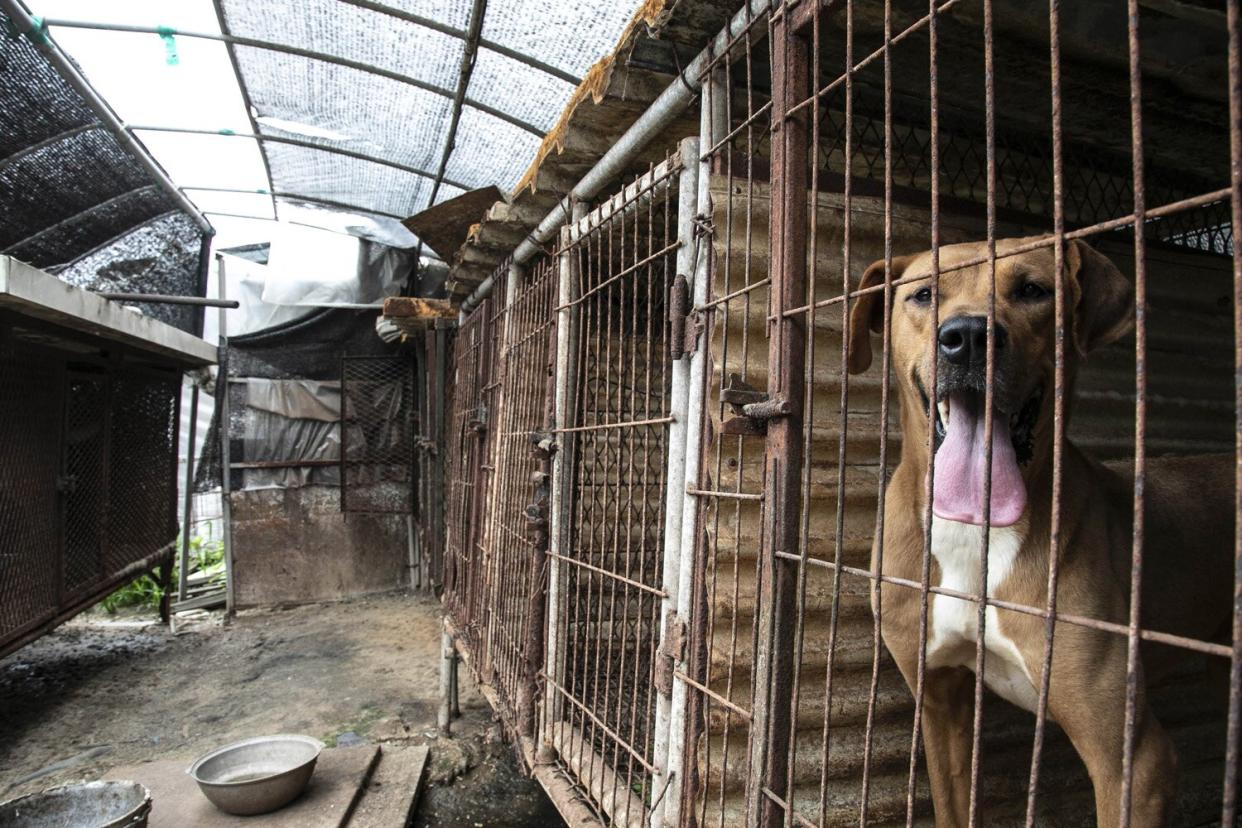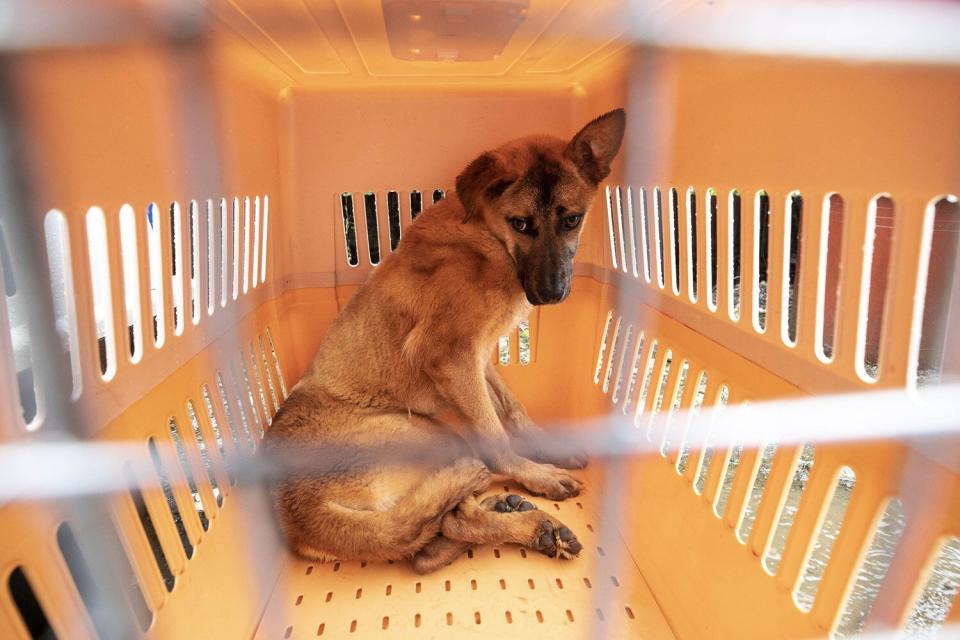Korean Animal Groups Save 21 Canines Left Behind at Dog Meat Farm from 'Unbearable Situation'

Jean Chung/For HSI A dog locked in a cage at a dog meat farm in Ansan City, South Korea, on Wednesday, July 6, 2022.
Animals welfare groups rescued 21 dogs from an illegal dog meat farm in Gyeonggi-do, South Korea, days before Bok Nal, a tradition marking the country's hottest days of summer.
On July 14, Humane Society International (HSI) reported that a team from Humane Society International/Korea and Korean K9 Rescue saved the canines left behind at the illegal farm following the facility's closure by authorities. Government officials removed 38 dogs from the farm and rehomed the canines before the animal groups' rescue mission. The 21 dogs left behind had a "deadline for removal" that, if surpassed, would've put the pups at risk of being euthanized or sold to a slaughterhouse, HSI shared in a release about the rescue.
"Korean K9 Rescue is happy to work in partnership with HSI in dismantling and rescuing animals from the Ansan dog meat farm. As the animals are suffering in the sweltering summer heat, we have moved quickly to remove them from an unbearable situation that no living being should endure. It's important we keep pushing for reform and change to the agriculture laws within South Korea and effectively promote change from within," Gina Boehler, the executive director of Korean K9 Rescue, said in a statement.
The animal groups saved the canines days before the start of Bok Nal, a tradition in South Korea that marks the three hottest days of summer. During Bok Nal, many canines at Korean dog meat farms are sold and killed for a dog meat soup, known as "bosintang," according to HSI. While the tradition continues, a recent opinion poll commissioned by HSI/Korea and conducted by Nielsen found nearly 84% of South Koreans said they don't or won't eat dog, and almost 60% supported a legislative ban.
HSI added in its release that as part of the farm's closure, the former owner signed a legally binding agreement that they would never farm dogs again.
"This dog farm is typical of so many across South Korea where thousands of dogs are languishing in filthy, deprived conditions, enduring the unimaginable frustration of being confined in tiny cages their whole lives until they are brutally killed by electrocution," Sangkyung Lee, HSI/Korea's dog meat campaign manager, said of the rescue in a statement.
RELATED: 4,000 Former Research Beagles Moving from Virginia Facility to Shelters to Find Forever Homes
The statement continued, "Thankfully, we are able to bring a happy ending for these young dogs who will receive all the medical care and attention they need before flying to North America later in the year to seek adoptive homes."

Jean Chung/For HSI A dog sits inside a crate after its rescue from a dog meat farm in Ansan City, South Korea, on Wednesday, July 13, 2022.
According to HSI, President Yoon Suk-yeol and First Lady Kim Keon-hee of South Korea — who own four dogs together — have voiced their support for banning dog meat consumption in the country.
In 2021, the BBC reported that an estimated one million dogs are slaughtered yearly, even though most Koreans have never consumed dog meat.
RELATED: 126 Dogs Rescued from 'Illegal Slaughterhouse' in China
HSI shared in its release that despite the lack of popularity in dog meat consumption, some people, especially older generations, believe that dog meat soup can "build stamina" and help cool the consumer down amid hot temperatures.
Dog meat consumption is banned in Hong Kong, Taiwan, the Philippines, India, Thailand, and Singapore, the cities of Shenzhen and Zhuhai in mainland China, the Siem Reap province in Cambodia, and 17 cities and regencies across Indonesia, HSI said, though the degrees of enforcement varies.

